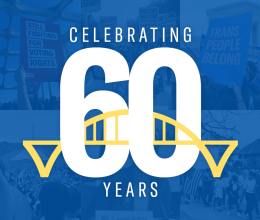
As Alabama’s parole grant rate has dropped to historic lows in 2023, a new report seeks to explain what is happening at parole hearings in Alabama and to capture parole data that is not publicly available or easily accessible.
The ACLU of Alabama’s Parole Watch Report was created to collect eyewitness observations of the state’s public parole hearings. The Parole Watch Team observed 267 public parole hearings over a ten-week period in June, July, and August. They recorded who opposed parole grants and why, how individual board members voted, who were the incarcerated people being denied parole, and whether they were as “dangerous” as Alabamians have been led to believe.
Of the 267 public hearings observed, the Parole Board granted only 19 paroles: 16 in June and three in July. The Parole Board also voted to set the maximum time period for reconsideration for nearly 75 percent of the individuals denied parole during those hearings. For one-quarter of the denied paroles the Team observed, the Parole Board’s denial meant the applicant would remain in prison for the remainder of their sentence without another opportunity for parole.
Additional trends identified by the Parole Watch Team this summer include:
- A majority of parole applicants (86.5 percent) assigned to work release facilities were denied parole even though they have been vetted by the Alabama Department of Corrections as people who can safely work in our communities. The Parole Watch team observed 74 parole hearings involving parole applicants assigned to work release facilities, and only ten were granted parole.
- The Attorney General’s Office and/or VOCAL opposed parole in at least three of every four (78.3 percent) parole hearings. Leigh Gwathney, the Parole Board Chair, followed the AG Office’s recommendation and voted to deny parole in 100 percent of the cases opposed by the AG's Office.
- White applicants are more than twice as likely to be granted parole than Black applicants, even when Black and white parole applicants are similarly situated.
“For the last five years, state officials have lied to Alabamians about why our parole grant rates have fallen to record lows,” said Alison Mollman, Interim Legal Director at the ACLU of Alabama. “The Parole Board’s decisions aren’t motivated by concerns for public safety. Their decisions are retributive, racially disparate, and prevent people who could safely and responsibly reenter society from returning to their families. It is time for the Parole Board to follow the law and their own guidelines. It is time for incarcerated Alabamians to come home.”
For most of 2023, the Parole Board has operated with only two members. From January to late-March, with only Leigh Gwathney and Darryl Littleton sitting for hearings, the parole rate was at or below 5 percent. After Kim Davidson was tapped to finish Dwayne Spurlock’s term (April through June), the Parole Board’s average grant rate jumped to 10 percent, peaking at 17 percent. In July and August, with the Parole Board again operating with only Gwathney and Littleton, the grant rate returned to sub-five percent. Davidson was not reappointed to the Board; Governor Ivey appointed Gabrielle Simmons in August.
Learn more about the ACLU of Alabama’s work on smart justice and prison reform at:
https://www.alabamasmartjustice.org/


